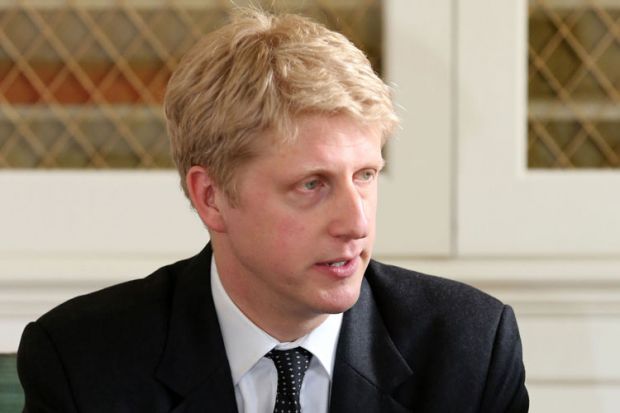Jo Johnson has returned to his former brief as universities and science minister, after his brother Boris Johnson took over as prime minister and appointed a new ministerial team.
Mr Johnson left the post in January 2018 under former prime minister Theresa May, after opposing her plans to introduce a major review of post-18 education, and subsequently resigned from government entirely in order to voice support for a second EU referendum.
He replaces Chris Skidmore, who had served as universities and science minister since 2018, and will attend cabinet.
In his time outside government, Jo Johnson continued to be a vocal opponent of the Augar review and its recommendations that university tuition fees be cut to £7,500, with replacement public funding weighted towards high-cost subjects or those with the greatest “social and economic value”. His return to government will make him an influential force against implementation of the review's recommendations on higher education funding, while universities will also welcome his return given his campaign for the return of post-study work visas.
Gavin Williamson has been appointed education secretary and Andrea Leadsom business secretary, as new prime minister Boris Johnson purged opponents of a no-deal Brexit from his Cabinet.
The former education secretary, Damian Hinds, and the former business secretary, Greg Clark, both exited their posts on 24 July after Mr Johnson became prime minister earlier in the day, amid a dramatic cull of ministers who served under his predecessor, Theresa May.
Mr Williamson, a former defence secretary and chief whip, takes over at the Department for Education, while Ms Leadsom takes the helm at the Department for Business, Energy and Industrial Strategy, which is responsible for research policy and funding.
Mr Hinds had offered little in the way of contributions on higher education policy until a flurry of interventions – including criticism of universities on unconditional offers and setting in motion a review of admissions – ahead of the publication of the Augar review.
He had been understood to be a supporter of the Augar review.
A new prime minister and Cabinet more willing to countenance a no-deal Brexit will be alarming prospects for universities, which fear the consequences of such a move, in terms of wide-ranging impact on their operations and in specific aspects such as potentially ending their hopes of taking part in the EU's research programme after Brexit.




